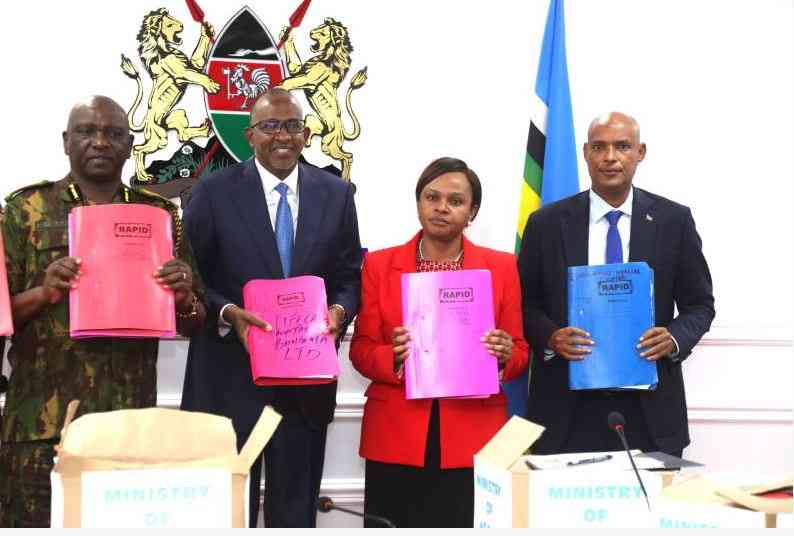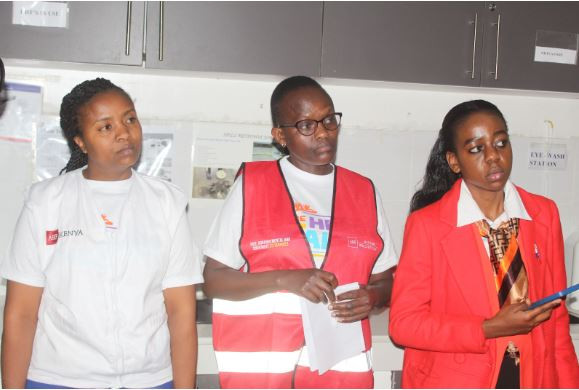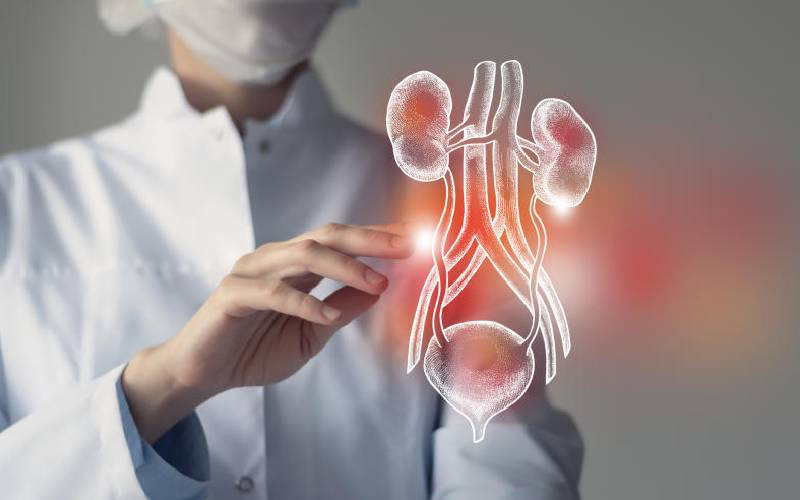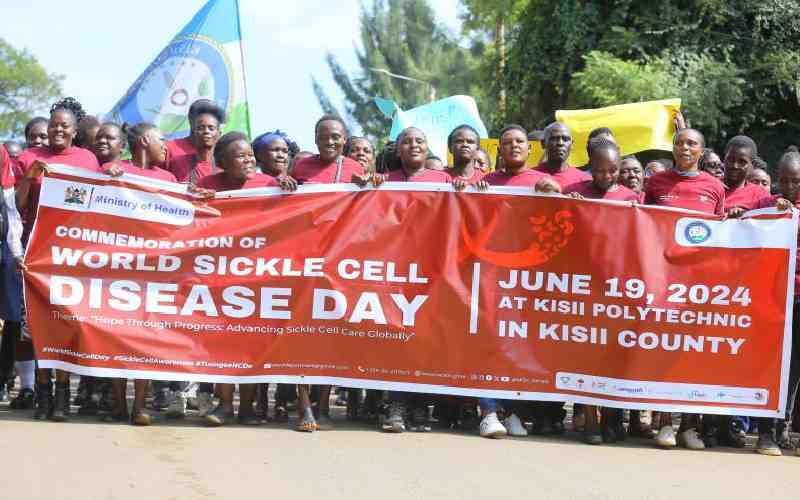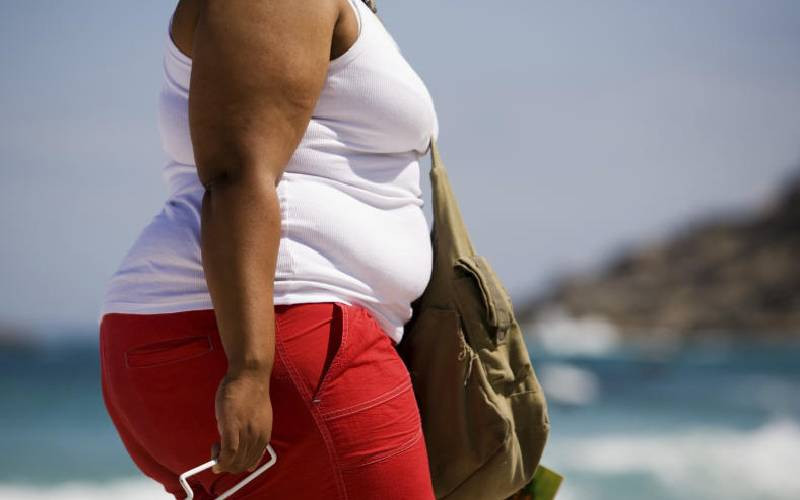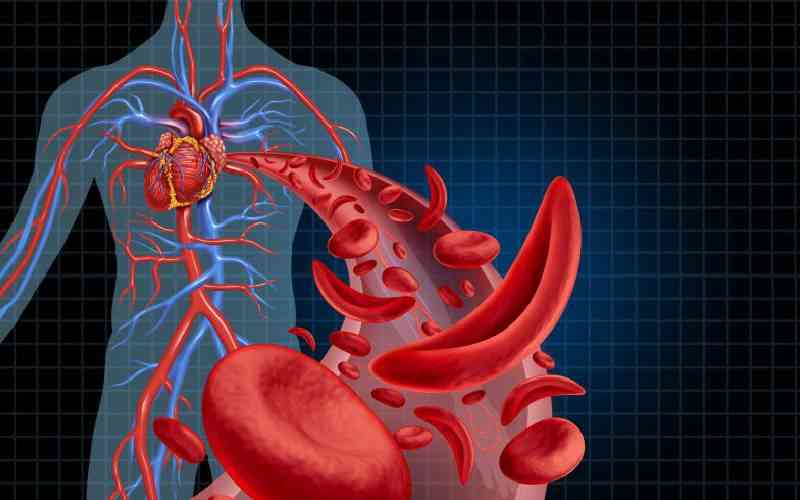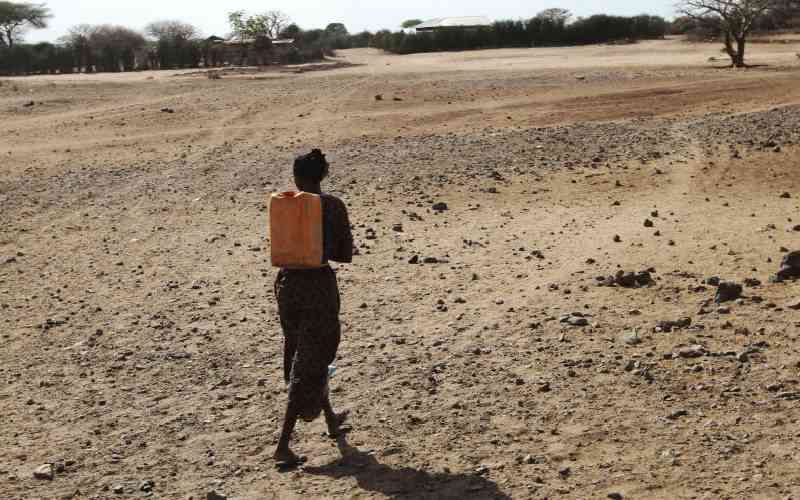
On the outskirts of Kiunduani market, along the Nairobi-Mombasa road in Makueni County, three tiny voices pierce the air with an almost synchronised cry from their sleeping parlour. The triplets’ father, Cyrus Sila, gently lifts each one, his hands steady as he cradles his daughters, murmuring soft reassurances in a low, soothing voice.
He shifts the three girls in his arms, their small fingers curling tightly around his shirt, as though afraid to let go. With practiced ease, Sila rocks them, patting their fragile backs, pressing their delicate forms against his chest, offering them the comfort of his heartbeat.
The babies, their eyes wide and full of trust, lock gazes with their father. Sila meets their eyes with warmth, and within moments, their cries begin to fade, the safety of his presence dissolving their distress. “I am both their father and mother. We have learned to connect in a way only we understand,” he says, pride in his voice as his other two children—a boy and a girl—hover nearby.
Now, at the tender age of one year and two months, the triplets have brought Sila peace. He smiles more easily these days, his expression steadier. It’s a far cry from the dark days when he had been swallowed by grief after his wife disappeared without a trace, two months after their daughters’ birth. Since then, Sila has heard nothing from her and has been left to raise five children on his own.
He recalls the night his wife left. She had gone for a walk, claiming she was heading to get medicine for the babies. She switched her phone off, and she never returned. The fragile triplets had just been discharged from the hospital, and the doctor’s stern advice on nutrition still echoed in his mind.
Yet, despite his best efforts, Sila, reliant on sporadic, low-paying jobs, could not provide the proper nutrition they needed. Without it, the babies fell ill repeatedly, their tiny bodies succumbing to infections, with each hospital visit a painful reminder of his helplessness.
Like many newborns in Makueni, the triplets were born malnourished and severely underweight. Immediately after birth, they were admitted to the Neonatal Intensive Care Unit at Makindu Sub-County Hospital, where they received specialised care. Their fragile health was made worse by the absence of their mother, who had fled, depriving them of the crucial breast milk they needed to thrive.
- UNICEF warns 14 million children face nutrition service cuts in 2025
- Mutula's slip of the tongue rekindles HIV stigma debate
- Economy and politics major contributors of child malnutrition
- How malnutrition and poor diets hurt Kenya's growth
Keep Reading
“For the first few months, I felt like a ghost. Taking care of them was overwhelming. Some people would tell me the babies were a blessing, but inside, I kept asking, ‘What kind of blessing is this?’ I was struggling,” ,” Sila recalls.
He remembers the moment when the largest of his daughters weighed just over a kilogramme at birth, while the others weighed only 0.8 and 0.9 kilogrammes—frail and vulnerable.
Though the path ahead remains uncertain, he finds strength in the bond he shares with his children.
Dr Patrick Musyoki, the Medical Officer of Health at Kibwezi West Sub-County, says that the triplets are now out of danger, adding that they only require proper complementary feeding in line with the recommended nutrition regimen.
The medic explains that malnutrition is a disease and warns that without timely interventions, children with severe malnutrition would inevitably die.
Some children are born already malnourished, says the Ministry of Health, and this happens when the mother herself is malnourished during pregnancy, which affects the growth and development of the foetus.
“This occurs when the mother does not take in enough essential nutrients, such as proteins, vitamins, and minerals, leading to low birth weight, which was the case for the triplets,” explains Dr Musyoki.
The average weight of a normal newborn should be 2.5 kilogrammes, he says, and any weight below this is classified as underweight. Such babies should receive proper care to save their lives.
Sila says providing his daughters with proper complementary feeding, including specialised formulas and fortified foods alongside supplements, such as Vitamin A, iron, zinc, and iodine to address the nutrition deficiencies, has been a daunting task due to his reliance on erratic menial jobs to put food on the table.
“I could only afford white porridge for them,” says Sila.
Makueni Deputy Governor Lucy Mulili programme, Mainstreaming Gender in Adolescent Health and Nutrition, has supported Cyrus, and other infants living under extreme poverty, through this tough journey. She extended the programme to include the triplets, ensuring they received proper nutrition to stay healthy and avoid hospitalisation.
The programme originally targeted primary school girls aged 10 to 16, addressing issues, such as nutrition, menstrual hygiene, and sex education..
Today, the once fragile girls—Faith*, Fiona* and Felicia*—appear strong and healthy.
“I can now confidently say they are a blessing. They’ve gained weight and are healthy. I’m overjoyed,” says Sila.
“The babies are strong and out of danger. That is my joy,” Mulili adds, vowing continued support.
Malnutrition, especially among newborns and children under five, has been on the rise in Makueni, prompting the county government to invest heavily in tackling the issue. The deputy governor says each of the six sub-counties has at least five health centres dedicated to malnutrition. In Kibwezi West, the home of the triplets, 22 centres manage malnourished children.
“Malnutrition cases have risen, especially in areas with unreliable rainfall and crop failure,” Mulili explains.
The government also provides free micronutrient supplements at health facilities.
In Makueni, children with acute malnutrition are admitted to the Inpatient Programme (IP), those with moderate malnutrition are placed in the Outpatient Therapeutic Programme (OTP), and those with less severe malnutrition are enrolled in the Supplementary Feeding Programme (SFP).
Data from the county health department shows that in 2024, 376 children under five were diagnosed with acute malnutrition and admitted to facilities. During the same period, 1,717 children were diagnosed with moderate malnutrition and placed in the outpatient programme, while another 1,330 were recommended for the SFP.
According to the Kenya Demographic and Health Survey (KDHS) 2022, many children under five in Makueni suffer from malnutrition, with 20 out of every 100 children exhibiting stunted growth and 8.7 per cent being underweight. Additionally, four out of every 100 children are classified as wasted.
 The Standard Group Plc is a multi-media organization with investments in media
platforms spanning newspaper print
operations, television, radio broadcasting, digital and online services. The
Standard Group is recognized as a
leading multi-media house in Kenya with a key influence in matters of national
and international interest.
The Standard Group Plc is a multi-media organization with investments in media
platforms spanning newspaper print
operations, television, radio broadcasting, digital and online services. The
Standard Group is recognized as a
leading multi-media house in Kenya with a key influence in matters of national
and international interest.

